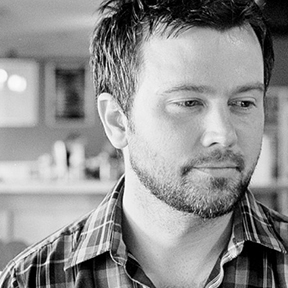Date: Wednesday, June 3
Time: 1:00 – 2:00 p.m.
Location: Gore Hall 104
Getting Our Hands Dirty: An Environmental Humanities Farm Project
An Environmental Humanities Farm Project from Summer Faculty Institute 2015
This talk will describe a new Environmental Humanities collaboration with a local organic farm, which has humanities studies planting, tending, harvesting, preparing and marketing organic produce. The project, in its first year, has been the center of a semester-long study of local and global food systems; has been a source of a number of student-written articles and essays; and is on the verge of “scaling up” with an eye on providing more local, organic food to the university and the Newark and Wilmington communities.
 McKay Jenkins, English
McKay Jenkins, English
McKay Jenkins has been writing about people and the natural world for almost 30 years. He is the author (with EG Vallianatos) of Poison Spring: The Secret History of Pollution and the EPA (Bloomsbury, 2014); What’s Gotten Into Us: Staying Healthy in a Toxic World (Random House, 2011); Bloody Falls of the Coppermine: Madness, Murder and the Collision of Cultures in the Arctic, 1913 (Random House, 2005); The Last Ridge: The Epic Story of the U.S. Army’s 10th Mountain Division and the Assault on Hitler’s Europe (Random House, 2003); The White Death: Tragedy and Heroism in an Avalanche Zone (Random House, 2000); and The South in Black and White: Race, Sex, and Literature in the 1940s (Univ. of North Carolina Press, 1999) and the editor of The Peter Matthiessen Reader (Vintage, 2000). Jenkins holds degrees from Amherst, Columbia’s Graduate School of Journalism, and Princeton, where he received a PhD in English. A former staff writer for the Atlanta Constitution, he has also written for Outside, Orion, The New Republic, The Huffington Post, and many other publications. Currently the Tilghman Professor of English, Journalism and Environmental Humanities at the University of Delaware, he lives in Baltimore with his family.
Introducing Students to the Geography of Environmental Justice: Spatial Visualization and Social Science for General Education
The Geography of Environmental Justice from Summer Faculty Institute 2015
Victor Perez presentation slides and handout (PDF format)
Studying environmental justice communities with maps allows students to see several related social phenomena, including race and socio-economic status, layered with specific geographic areas that have disproportionate levels of environmental burdens. The spatial patterns of race, socio-economic status, and pollution are not a coincidence, and have deep roots in industry, poverty, housing, race, and discrimination. This presentation will highlight one example drawn from the planned curriculum for a general education course on integrating spatial visualizations into social science analyses. The curriculum, supported by a 2014-15 IT/CTAL Innovative Transformation Grant, is being developed for a course that will allow non-geography, non-social science students an opportunity to see the power of mapping in the social sciences without a sophisticated GIS background.
 Victor Perez, Sociology
Victor Perez, Sociology
Victor Perez is an assistant professor of sociology with specializations in the sociology of risk, public health, medical sociology, and survey research. A unifying theme throughout his graduate student and early professorial career is the entwined configuration of health, risk, and society, focusing on health issues as social problems. Currently, his research projects include a survey of vaccine risk perception; citizen-science alliances dealing with legacy pollution and sea-level rise in impoverished areas; and studying how the popular media presents the issue of cancer clusters. As a faculty member in the Department of Sociology and Criminal Justice at UD, he regularly teaches quantitative sociological research methods, social statistics, and data analysis, as well as introductory sociology. Other courses that he has created include the Sociology of Diagnosis, as well as Environment and Health.

